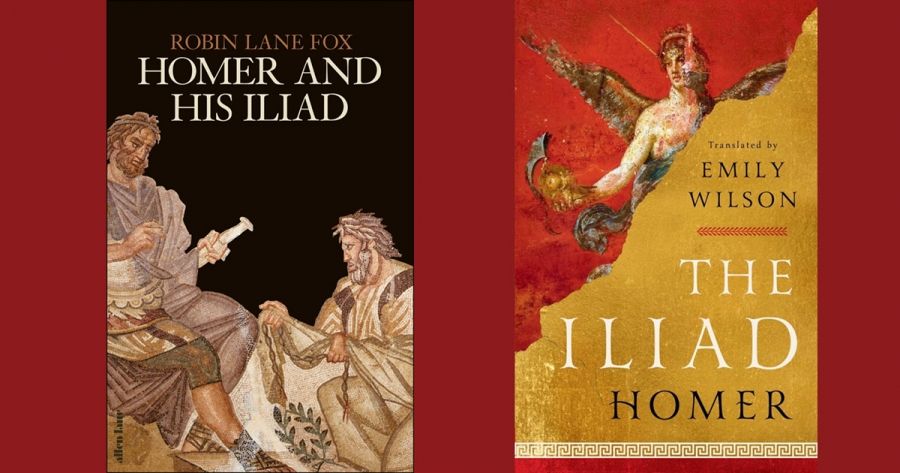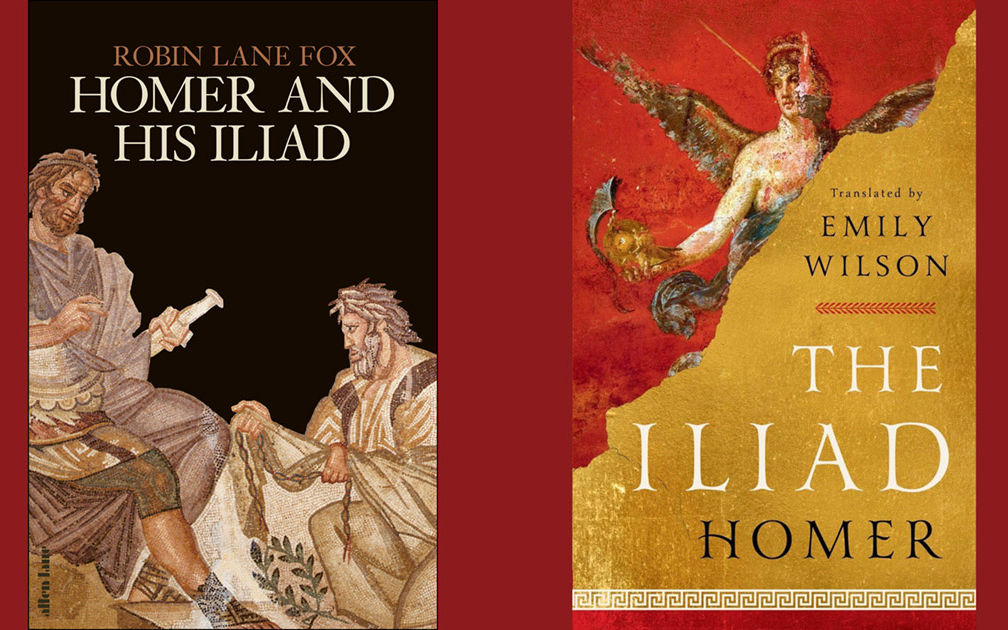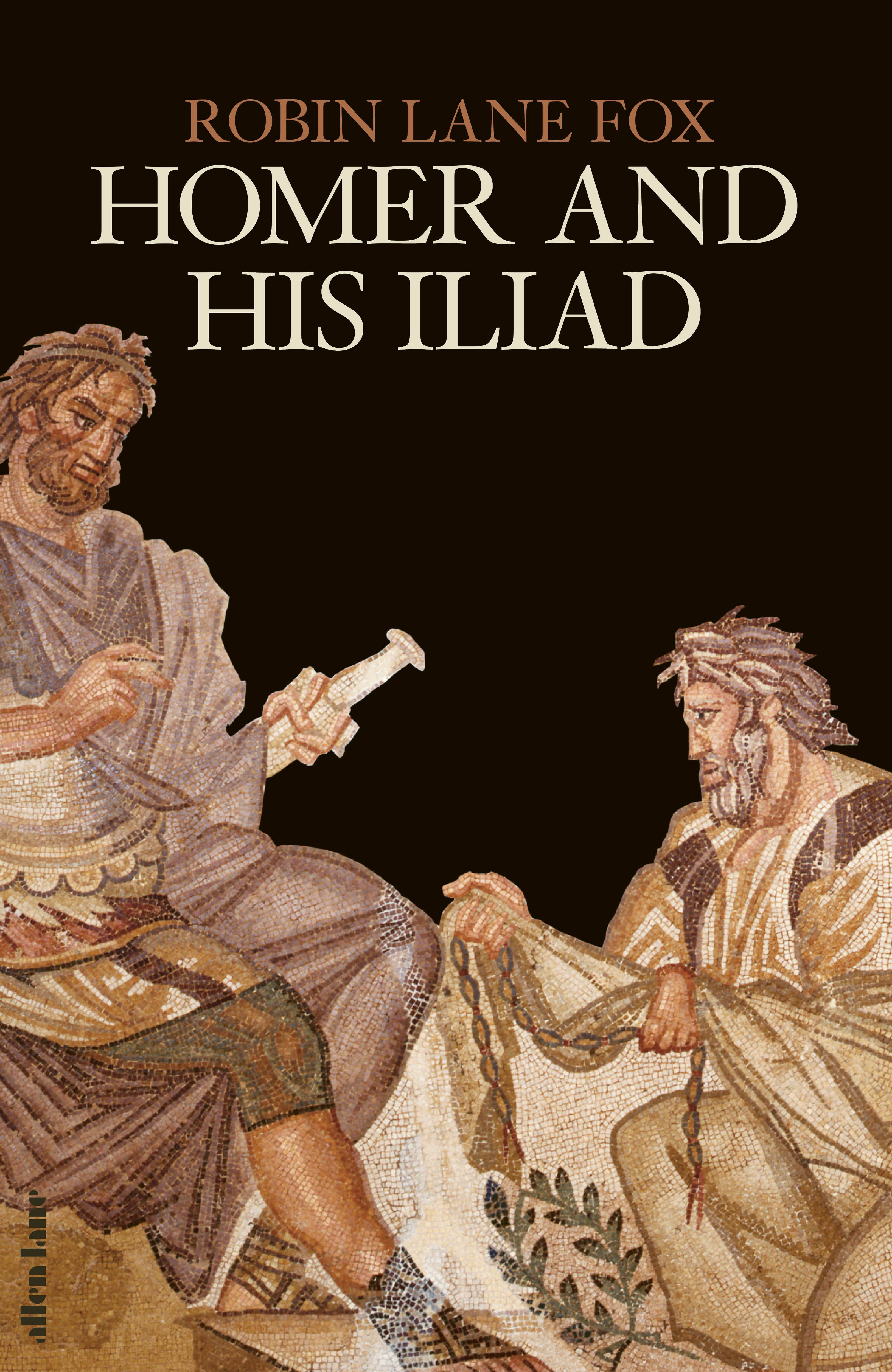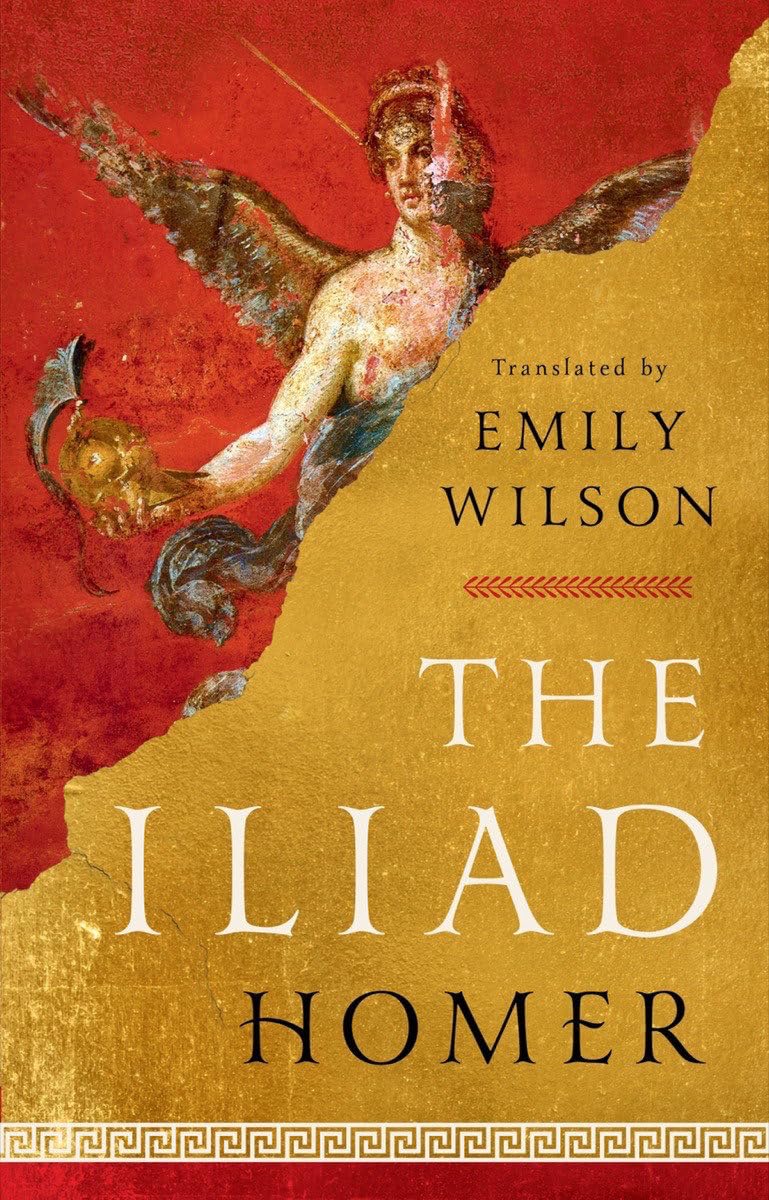
- Free Article: No
- Contents Category: Classics
- Review Article: Yes
- Article Title: The ties that bind
- Article Subtitle: An absorbing new translation of the Iliad
- Online Only: No
- Custom Highlight Text:
Fans of the Iliad have been well served recently. Late last year saw the arrival of a new translation by Emily Wilson, whose earlier translation of the Odyssey (2018) was greeted with near universal acclaim, and it was joined by a new book about Homer and the composition of the Iliad by one of the leading scholars of Greek history, Robin Lane Fox. Both works encourage us to rethink our connections to this epic poem and its value for contemporary life. Set against a backdrop of clashing Greek and Trojan forces, what does this poem about the fatal sequence of events that emerges from a disagreement between two feuding warlords have to teach us?
- Featured Image (400px * 250px):

- Alt Tag (Featured Image): Alastair Blanshard reviews ‘Homer and His Iliad’ by Robin Lane Fox and ‘The Iliad’ by Homer, translated by Emily Wilson
- Book 1 Title: Homer and His Iliad
- Book 1 Biblio: Allen Lane, $65 hb, 451 pp
- Book 1 Cover Small (400 x 600):

- Book 1 Cover (800 x 1200):

- Book 2 Title: The Iliad
- Book 2 Biblio: W.W. Norton & Company, $65.95 hb, 820 pp
- Book 2 Cover Small (400 x 600):

- Book 2 Cover (800 x 1200):

In the opening lines of the Iliad, Homer declares that the subject of his epic is going to be anger. In the Greek, the word for anger, mēnis, is the very first word of the very first line of the poem. In her new translation, Wilson delays the word until the end of the line. Yet its force is unmistakable, underlined by the adjective ‘cataclysmic’, a bold rendering of the Greek oulomenēn which is normally taken to mean ‘cursed’ or ‘ruinous’, but here is given the inescapable force of a tidal wave:
Goddess, sing of the cataclysmic wrath
of great Achilles, son of Peleus
which caused the Greeks immeasurable pain
and sent so many noble souls of heroes
to Hades, and made men the spoil of dogs
The Iliad announces itself as poem that is going to be a hymn of rage and resentment, of tragedy and slaughter. However, as both Wilson and Lane Fox show, each in slightly different ways, this is a poem that is as much about love as it is about anger.
The great passion of Achilles for his boyhood companion Patroclus and his inexhaustible sorrow at Patroclus’s death is the central motivating factor that propels the narrative of the poem. Patroclus dies because Achilles is sulking in his tent, having been wronged by the leader of the Greek forces, Agamemnon. It is only the death of his dear Patroclus that can cause Achilles to swallow his pride, make amends with Agamemnon, and return to the battlefield in search of the man who killed Patroclus, Hector.
Hector may have dispatched Patroclus, but he is no cold, killing machine. Again, we are dealing with a man given to tremendous love and affection. In one of the most moving scenes of the Iliad, we see Hector at home enjoying a break from the fighting with his wife Andromache and infant child. Andromache begs him not to return to the frontline. She paints a terrible picture of what her life would be like, if he were to fall in battle. For the audience of the poem who know that Hector is doomed to die, it is a scene of tremendous pathos.
Time and again, the Iliad reminds its readers of the ties that bind us together. Over the course of twenty-four books, countless heroes die. But they never die anonymously. As each is dispatched, we are treated to a brief portrait that often stresses that these were men who love and were loved in turn. We hear about their mothers, their fathers, their brothers, and the orphaned children left behind. We learn about what they loved in life, their skills in hunt and craft, and their delight in feasting and the company of their friends. We are not spared the pain, the gaps, that each death leaves.
It is the portrayal of this grand entanglement of humanity that makes the Iliad such a personal and modern work. Its treatment of battle is fast-paced, gritty, and riveting. Yet, it is no boys-own-adventure story. It is a work only too aware that actions have consequences. The Iliad reminds us what it means to lose our loved ones. Wilson concludes the introduction to her translation with the following observation: ‘You already know the story. You will die. Everyone you love will die. You will lose them forever. You will be sad and angry. You will weep. You will bargain. You will make demands. You will pray. It will make no difference. Nothing you can do will bring them back. You know this. Your knowing changes nothing. This poem will make you understand this unfathomable truth again and again, as if for the very first time.’
In keeping with this vision of the poem, Wilson’s translation is lean and direct. Homeric Greek, for all its grandeur, was also remarkably straightforward and comprehensible, and her version of the Iliad has a restrained quality which eschews literary fireworks; a clever translation that realises the value of a work of art that hides its artfulness. Ancient critics praised the poem for its pacing, and Wilson’s decision to use iambic pentameters helps to give her poem the beat that it needs to keep things running. She is keen to keep a tight rein on the connotations of the words she deploys. So, her translation has ‘leaders’ not ‘princes’, and they sleep in ‘huts’ and ‘tents’, not ‘pavilions’ or ‘castles’ – lest we imagine ourselves in some medieval-style Romance. At the same time, she is determined to ensure that the richness of the Greek is given full measure. Poetic Greek is often compressed and economical in its wording. For this reason, Wilson’s resulting translation is longer than the original text. Unpacking one line of Greek requires a couple of lines in English. The translation adopts a dual system of line numbering with one set of numbers keyed to the original Greek to help readers locate their favourite passages.
Although produced independently, Lane Fox’s book makes a useful accompaniment to Wilson’s translation. In some ways, his vision of the Iliad is even more singular than Wilson’s. His book is the product of a lifetime of studying and teaching the text, and this familiarity with the Iliad gives Lane Fox a confidence in his opinions. He steps boldly where others are much more cautious.
The first half of the book attempts to solve the problem of the authorship of the poem. Ever since antiquity there has been debate about who authored the poem and how it was put together. Is the poem the product of one man or many? Lane Fox prefers to see this work as the product of a single mind in the eighth century BCE who, having absorbed a long oral tradition about the conflict of Troy, composed a version which he then dictated to eager scribes, establishing a core text which became embellished over time. He won’t persuade everyone to his opinions, but he will inspire some avid followers. Lane Fox is a careful and sensitive reader, and his insights about the structure of the poem, its use of topography, and its stylistic quirks are worth paying attention to.
In the second half of the book, Lane Fox offers a very personal appreciation of why the text matters. He lists his favourite books (he is no fan of the seventh) and explores the important themes in the text. These include the treatment of the gods, the ethos of the Homeric hero, the treatment of women, and our perception of the natural world. He concludes with an analysis of the poem’s most abiding feature, its ‘ruthless poignancy’.
The Iliad opens with a plague and ends in a funeral. It is a poem drenched in death. And yet, as these two works demonstrate, it is an epic that bursts with vitality and life. Divinities move through the action, but humanity is the star. Vain and shallow, the gods lack the dignity of mortals. The Iliad abounds in paradox and irony, yet its message is direct. Never forget that everything is fleeting and inconsequential except the words of an immortal poem.


Comments powered by CComment